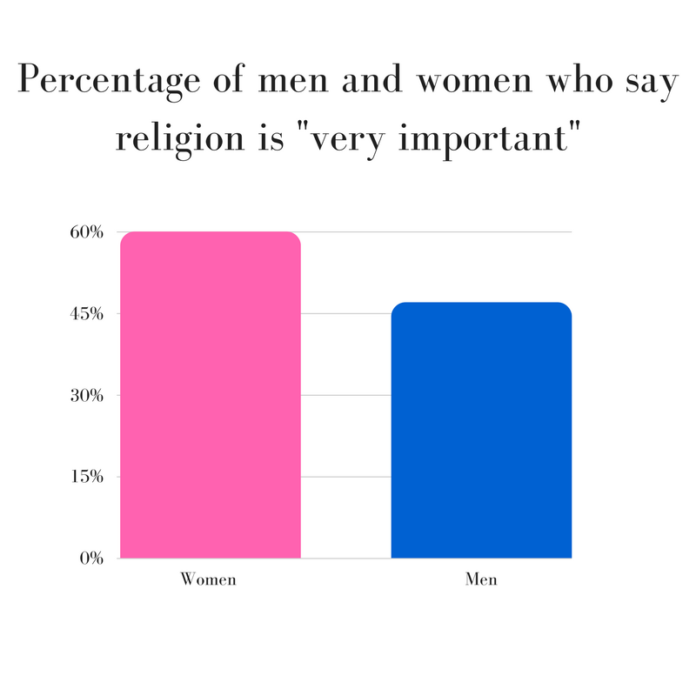
By Thomas Moran | Staff Writer
New research conducted by the Pew Research Center suggests women in Christian denominations are generally more religious than men. By most measures, women are more active within their church communities and more likely to believe in heaven and hell.
The study found that in the United States, 60 percent of women say religion is “very important” in their lives while only 47 percent of men said the same. The study examined several measures, including weekly church attendance, daily prayer and belief in an afterlife. In every measure, women were more religious to varying degrees.
Baylor sociology graduate students Amanda Hernandez and Rebecca Bonhag have studied dynamics between religion and gender throughout societies.
Hernandez said there are several theories to explain this gap in religiosity between men and women.
“Some people think that it is a nature, that there is something biological or physiological that makes women inherently more religious than men,” Hernandez said. “But as sociologists, we think that there are other social factors that play into it.”
Manchester, Calif., senior Madison Fraser said she believes the difference has not impacted her on Baylor’s campus.
“In my personal experience, I haven’t seen any situation where a woman is more spiritually involved than a man,” Fraser said. “Just being at Baylor, I’ve seen equally men and women involved in religion. I feel like there are fairly equal opportunities.”
Some believe the discrepancy in religiosity might also be the result of biological influences as well, Bonhag said.
The Pew study said some biology-based theories suggest that testosterone levels might have an impact on the gender gap in religion.
Bonhag said there could be also be socialization differences in the way that men and women grow up.
“They’re taught to be religious in different ways. Religiosity may be more stressed for women than for men,” Bonhag said.
One sociological theory suggests that existential threats may lead to increased religiosity, Hernandez said. This might display as increased religiosity among women who feel unsafe in their cultures.
“In many societies, women are more vulnerable than men, and the theory is that vulnerable populations will be more likely to be religious because it helps to fill that existential need,” Hernandez said.
The study showed that this difference is most evident in Christianity, while other religions show equal religiosity between genders.
Within Muslim populations, men generally attend religious services more than women do, Bonhag said.
The Pew research also says globally 83.4 percent of women identify with a faith group while only 79.9 percent of men identify with a faith group.
Hernandez and Bonhag suggested the difference in religiosity between genders has not an impact on society in general however.





